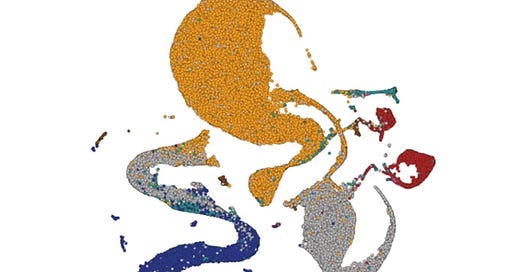Navigating Complexities of "Race": Analyzing Genetic Diversity in the All of Us Study
Unveiling Genetic Diversity: A Controversial Conundrum
Recently, a storm brewed in the scientific community following the publication of a monumental paper in Nature1, detailing the findings of the All of Us study—a massive U.S. health research endeavor aimed at capturing the genetic diversity of people across the nation. While lauded for its ambition and scope, the paper faced significant scrutiny over a ke…
Keep reading with a 7-day free trial
Subscribe to Anthropology.net to keep reading this post and get 7 days of free access to the full post archives.


